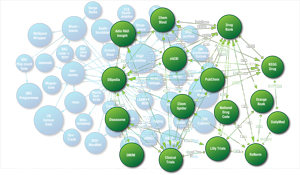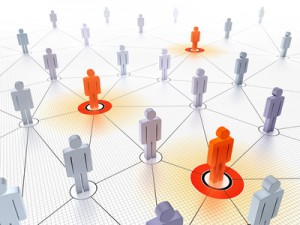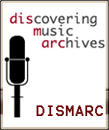
Linked Open Data and Europeana
Maarten Zeinstra and Paul Keller, Kennisland
 Aggregate. Facilitate. Distribute. Engage.
Aggregate. Facilitate. Distribute. Engage.
These are Europeana’s core ambitions. They are goals with many facets but one common aim: to make Europeana the authoritative source for European cultural information and the key channel through which the collections of Europe’s cultural heritage institutions are promoted to the widest possible audience. Doing so will spark innovation, new business opportunities and unprecedented interest in Europe’s cultural treasures. Linked Open Data is critical to this success.
What Is It Exactly?
Data can be open but not linked. Data can be linked but not open. The Semantic Web can only function with data which is both open and linked.
For Europeana, Linked Open Data is:
• a technology to combine the many pieces of information we get from data providers,
• a way to share that data with other parties and
• a way to give users the best possible search experience.
 We can use the Mona Lisa as an example. If one provider describes the Mona Lisa as a painting by the Italian artist Leonardo Da Vinci and another source states it is a painting of a woman, linking these pieces of data will allow people to find the Mona Lisa by searching for paintings of women by Italian artists.
We can use the Mona Lisa as an example. If one provider describes the Mona Lisa as a painting by the Italian artist Leonardo Da Vinci and another source states it is a painting of a woman, linking these pieces of data will allow people to find the Mona Lisa by searching for paintings of women by Italian artists.
Europeana is already combining the records of data providers to create this mashup of information on various subjects. This includes the translation of things like names and locations.
Linked Open Data means that everyone will have access to these bits of information and will be able to reuse, copy, download, and distribute this data for any lawful purpose.
By having Linked Open Data, we can enrich the user experience and make data more accessible for all. We can embark on exciting projects such as creating a heritage map or incorporating our high-quality, trustworthy information on popular reference sites such as Wikipedia.
1http://blog.paulwalk.net/2009/11/11/linked-open-semantic
 Why Linked Open Data Matters To You
Why Linked Open Data Matters To You
Linked Open Data is the spark that sets the world’s most creative and inventive minds to work. Given the opportunity, they will develop products that have many benefits for your institution.
Higher Profile – Linked Open Data helps generate meaningful links between pages. This makes it easier for people to discover your content, which in turn raises your profile and drives traffic to your website.
Establish Authority – DBpedia, FreeBase and Project Gutenberg are frequently cited as respected metadata resources. Europeana and its partners can also become authorities for cultural heritage information; a ‘much-needed backbone of trust’ for the growing semantic web.
New Audience – When people analyse your data and use it to create things like APIs and mashups, they put your content in front of a new audience that you might not otherwise reach.
Better Customer Experience – By giving users high-quality, contextually relevant information, they will be more likely to consult you in future.
Efficient Use of Resources – Sharing data means scarce resources and taxpayers’ money can be used more efficiently because users can help enrich your metadata. It also means direct reuse in educational, scientific and cultural tourism domains.
Mapit1418.nl – a Dutch National Archives project - encapsulates the advantages of Linked Open Data. The website asks users to look at photos from the archives. If users know where the photos were taken, they pinpoint the images on maps from another Linked Open Data initiative, OpenStreetMap. This project has increased visitors to the Nationaal Archief, enriched their metadata and provided valuable feedback that would otherwise not have been shared.
Open Means Open
The ethos of Linked Open Data is to enable the widest possible use of data. The current non-commercial clause in the data provider agreements will be removed in order to allow Europeana to make its metadata resources available as Linked Open Data.
 What does the clause restrict? Imagine a BBC documentary on Mozart. It could be shown on a website, alongside a widget that uses data from Europeana to introduce the BBC audience to cultural objects about Mozart. This would expose thousands of people to your collection who would not otherwise visit Europeana or your website. The BBC, however, has advertising on its website.
What does the clause restrict? Imagine a BBC documentary on Mozart. It could be shown on a website, alongside a widget that uses data from Europeana to introduce the BBC audience to cultural objects about Mozart. This would expose thousands of people to your collection who would not otherwise visit Europeana or your website. The BBC, however, has advertising on its website.
The non-commercial clause would rule out this use. If Europeana and its providers do not enable uses such as this, we will fall behind in a rapidly changing environment. Wikipedia and others will take our place as the only available authoritative source for contextual data. This carries the risk of undermining the position of cultural heritage institutions as relevant information providers.
When we can supply Linked Open Data to other providers, we will all benefit by placing ourselves at the forefront of the technology revolution and establishing ourselves as the trusted and authoritative source on cultural heritage information.
More from Europeana...
